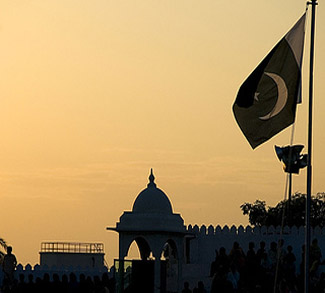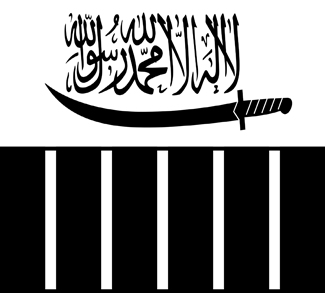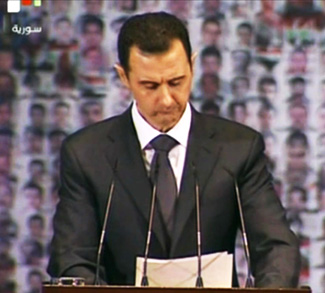On his last U.S. visit in October, Prime Minister Nawaz Sharif cancelled his scheduled visit to Chicago. He would not give Imran Khan’s brats any chance of spoiling his visit by staging a protest demonstration.
Weeks after this visit, Pakistan Chief of Staff (COAS) General Raheel Sharif landed in the United States, reportedly on his own, but projected as on invitation; by whom, nobody knows. The red-carpet treatment given to him suggests that all details of the visit were pre-planned. The Pentagon was calling the shots.
The general met with nearly the entire administrative and military echelons of the US government. They included Vice President Joe Biden, Secretary of State John Kerry, Defense Secretary Ashton Carter, Chairman of the Joint Chiefs of Staff Gen Joseph Dunford, Army Chief of Staff Gen Mark Milley, and CIA Director John Brennan, besides other influential US lawmakers.
This is an impressive list of US VIPs. However, the projection given by Pakistani media, especially the Dawn newspaper, was one for domestic consumption.
General Raheel received accolades from almost all of them for his “sustained challenge” to the terrorists in North Waziristan. He met with two Congressional committees on intelligence and security.
Normally, no Army Chief of any country meets with these committees. In the case of Pakistan COAS, it is interesting.
The U.S. had two important areas to talk to General Raheel. One was what role Pakistan is expected to play in seeing peace returns in Afghanistan. For this purpose, the general was told to stop clandestine support for terrorist groups in Afghanistan, especially the Haqqani Network, which has the declared policy of fighting the Americans there. The second purpose is to probe how Pakistan could be roped into a nuclear deal so that she is admitted to the group of uranium suppliers.
The U.S. is uncomfortable with the news that Pakistan is developing short-range local nuclear bombs.
It has to be reminded that during his meeting with US Secretary of State John Kerry, Nawaz Sharif handed over three dossiers highlighting evidence of India’s involvement in terrorist acts in Waziristan, Baluchistan, and Karachi. Thus in US-Pakistan talks about reconciliation in Afghanistan, Pakistan brings in the subject of India trying to make a foothold in Afghanistan, allegedly to the detriment of Pakistan’s national interests.
General Raheel is reported to have told his counterparts at the Pentagon that Pakistan’s expansion of its nuclear arsenal is India-centric and she would not take any chance with her security “as India was making her presence felt close to Pakistan border.”
Though we may not see many details out in the open following the general’s time in Washington, Sharif and senior US officials will go over the feasibility of the much-discussed “nuclear deal” for Pakistan. According to outlines of the deal reported by the New York Times and the Washington Post, the broad-stroke quid pro quo on offer from Washington is that Pakistan reign in and cap its nuclear arsenal (including all development of low-yield, short-range tactical nuclear weapons) in exchange for US-backed entry into the global community of normal nuclear states.
Pakistan’s government being what it is, a decision of this magnitude on the country’s nuclear weapons program cannot be made without the full backing and blessing of the country’s military. The Pakistani military certainly has good reason to see little benefit in such a deal and Washington may be mistrustful of Pakistan’s intent to comply, but these are issues that were certainly on the agenda during Sharif’s time in the United States.
Here comes in Kashmir issue, which Pakistan has linked to the entire gamut of regional security. Some recent happenings need to be noted. Escalation of LoC and IB firing and shelling in recent months has to be linked to Pakistan’s handing over of three dossiers to the US Secretary of State charging Indian intelligence interference in Waziristan, Baluchistan, and Karachi.
The one-hour-long secret meeting between Nawaz Sharif and Narendra Modi during the Kathmandu SAARC was never detected by the media. The role of Sajjan Jindal, Indian steel magnate, in bringing the two prime ministers to a secret meeting at his hotel suite in Kathmandu has only recently been told by journalist Burkha Dutt.
The blunt statement of former Kashmir Chief Minister Dr. Farooq Abdullah that what Pakistan keeps of J&K state is hers and what we keep is ours. And more recently the unexpected meeting between the security advisers of the two countries in Thailand has its significance. Pakistani envoy General Nasir had been tiptoeing in Delhi for quite some time without even the smallest fuss.
In his secret meeting with Narendra Modi, Nawaz Sharif made no secret of his domestic bagful of woes. Washington knows that Kashmir is handled by the army and not Pakistan’s democratic government.
To overcome this difficulty, General Raheel was advised by his Pentagon collaborators to undertake a trip to Washington and clarify his position. The clear message which he received from the Secretary of State Kerry was that he must positively cooperate in Afghan negotiations or lose 300 million dollar US aid for Pakistan’s war against the terrorists in Waziristan. A long list of sophisticated arms which Pakistan expects the US to supply her army is also on the anvil and now linked to the Afghan situation.
In the meanwhile, Obama has withdrawn his earlier statement of pulling out all American forces from Afghanistan. He is not withdrawing fully in view of critical situation in Afghanistan.
Nearer to home, NC as well as PDP leadership has been harping on Indo-Pak talks for the resolution of Kashmir issue. This is a double-edged weapon. On the one hand, it is to mollify the local terrorists and on the other it is to convey to both the countries that whatever is amicably decided by them has to be accepted by the Kashmiris.
In conclusion, if this strategy works according to American policy planners, Pakistan has to redraw her policy in Afghanistan, and in any case, liquidate the Haqqani Network immediately. In addition, General Raheel has to ask such terrorist outfits that are under the army’s patronizing wing to wind up their shops.
In this process, India may have to give up her claim on PoK. In such a situation, Modi will have a tough time with not only the Congress, which will oppose for opposition sake, but more importantly and dangerously with the right-wring extreme nationalists. It is also possible to balance the entire transaction with a large amount of autonomy for all the three regions of J&K with a right to ask for territorial reintegration.
If peace is what the U.S. wants in the region, and if Pakistan wants to come out wholesome from the very tenuous situation in which it is at present, then Islamabad must unload its baggage in Washington.
The opinions, beliefs, and viewpoints expressed by the authors are theirs alone and don’t reflect any official position of Geopoliticalmonitor.com.




